Two Thao family farms consider their post-pandemic future
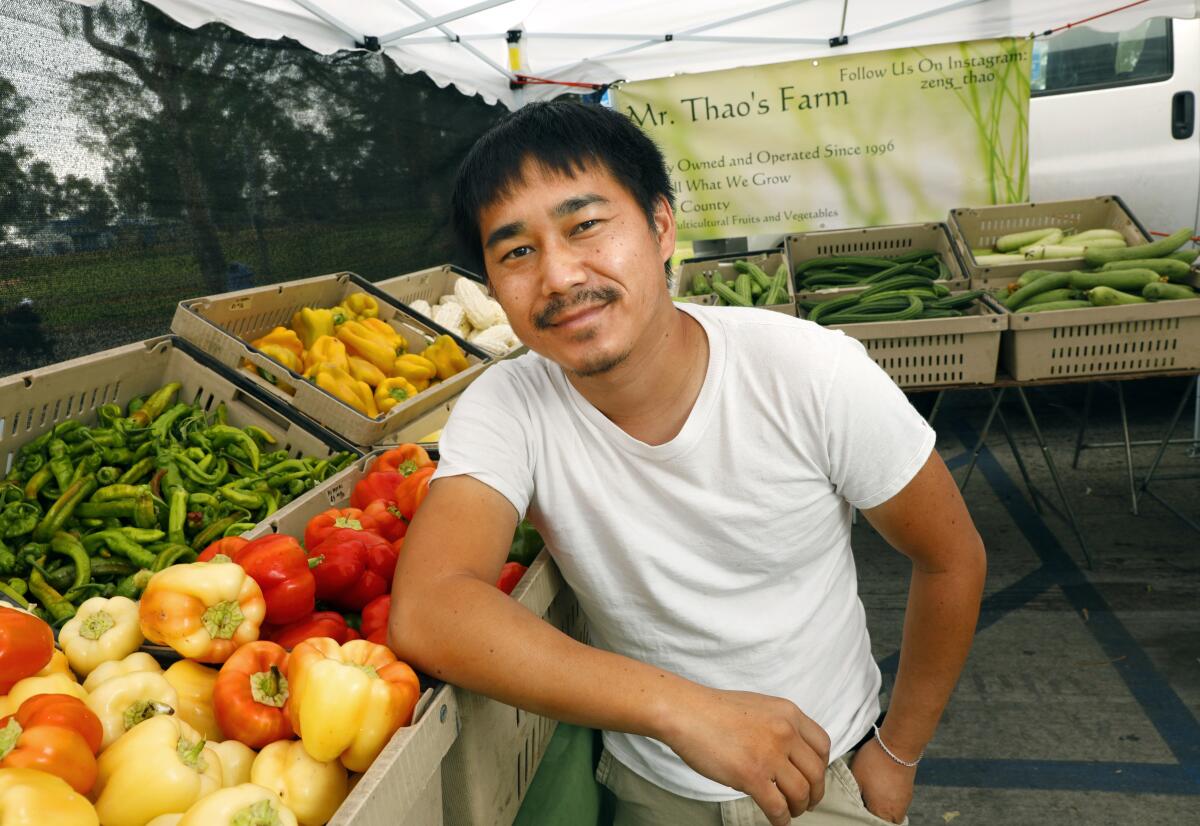
- Share via
Back in January, Kong Thao posted an announcement on Instagram that sent shock waves through the Southern California food world.
After nearly a decade of running his parents’ farm in Fresno, the 36-year-old figurehead of Thao Family Farm would no longer sell produce at Southern California farmers markets.
For the record:
3:25 p.m. Aug. 12, 2021A previous version of this story misquoted a UCCE study as saying there were nearly 2,000 Asian farms in the San Joaquin Valley in 2015. There were nearly 1,300 Asian farms in Fresno County in 2007. Also, Mr. Thao Farm is not at the Santa Monica Farmers Market on Saturdays; it is at Torrance.
“We will not be back in L.A. for any more markets,” his post read. “I think this is a good time to slow my parents down and give them more time with their grandkids.”
Amid a year of sagging sales and other COVID-related hurdles, Thao was not the only farmer to withdraw from the farmers market circuit, but his absence was felt acutely.
Over the last few years, Thao had emerged as one of the state’s most recognized and celebrated growers, the face of an operation that David Chang referred to as “one of the best farms in America” and a name that any serious L.A. chef had on speed dial.
The 300 varieties of produce grown on his family’s 30-acre farm — a list that included everything from sweet potato leaves to red amaranth to sprouting radish — were highlighted regularly at restaurants such as Rustic Canyon, Gjelina, Kismet, Orsa & Winston, Felix, Majordomo, Night + Market, A.O.C., Jon & Vinny’s and République.
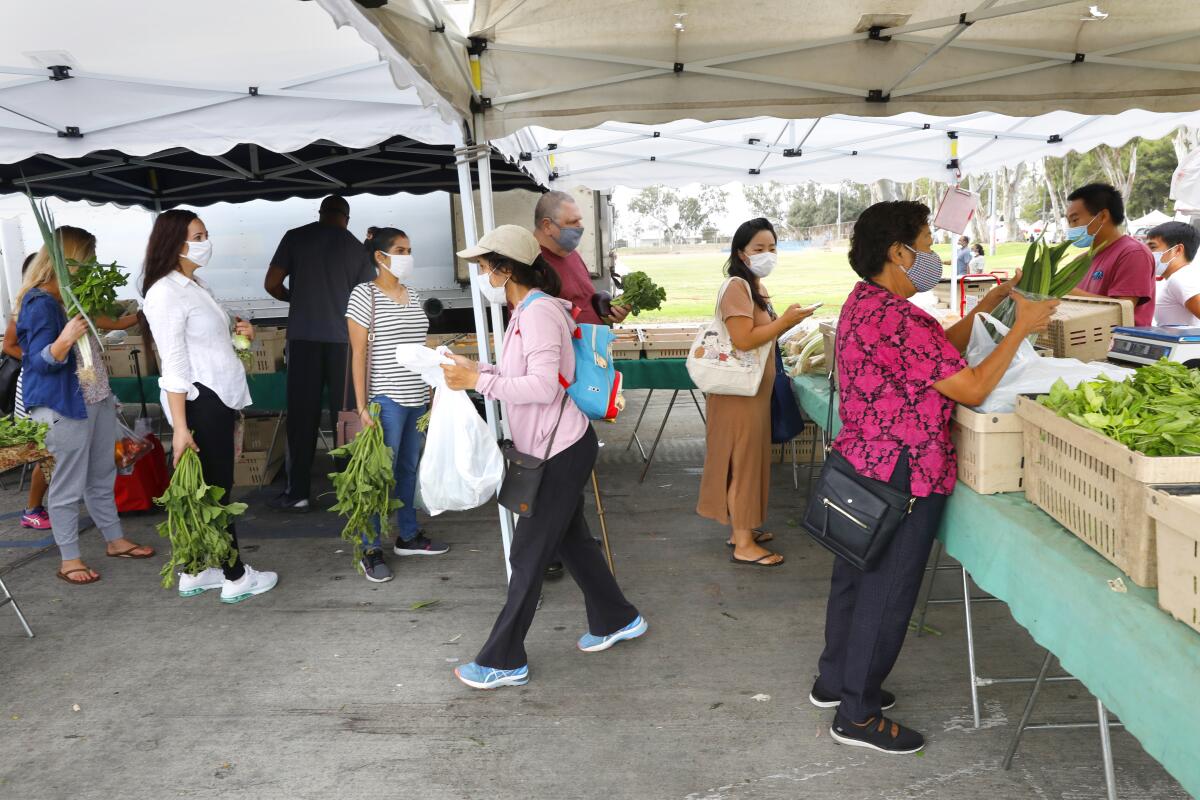
At the Santa Monica, Hollywood and Torrance farmers markets, his booth regularly attracted sizable crowds, leaving customers to jostle over that week’s pick of Thai shallots or Sungold tomatoes.
So what happened?
Like most of his small-farm peers, Thao saw sales to restaurants drop precipitously in the wake of COVID-19. He and his siblings spent months packing and delivering $40 produce boxes to keep the business alive. But financial challenges alone weren’t the reason for his departure.
“The decision was a long time coming,” Kong said. “We needed a break to figure things out for the future.”
But there’s a twist: Although Thao was motivated by a desire to spend more time with his immediate family, it was another part of his family that helped fill the void he left behind.
As of a few months ago, shoppers can once again pick up their prized lemon cucumbers and pink guavas from a Thao farm, this one run by cousins who live and work nearby.
To paraphrase the meme-ified maxim of Dominic Toretto in the “Fast & Furious” movies, family is indeed everything.
A relentless schedule
Even before the pandemic arrived, Kong Thao’s relentless schedule supplying L.A.’s markets and restaurants had begun to take a toll.
He averaged 25 hours on the road each week for years, hauling truckloads of produce down Highway 99 a dozen times a month. He often went without sleep during weekends in L.A., simply because he was too busy. His chiropractor recently told him he has the spinal cord of a 60-year-old.
Yet what weighed on the father of three most was the lack of time he was able to spend with his children, the youngest of whom was born last year.
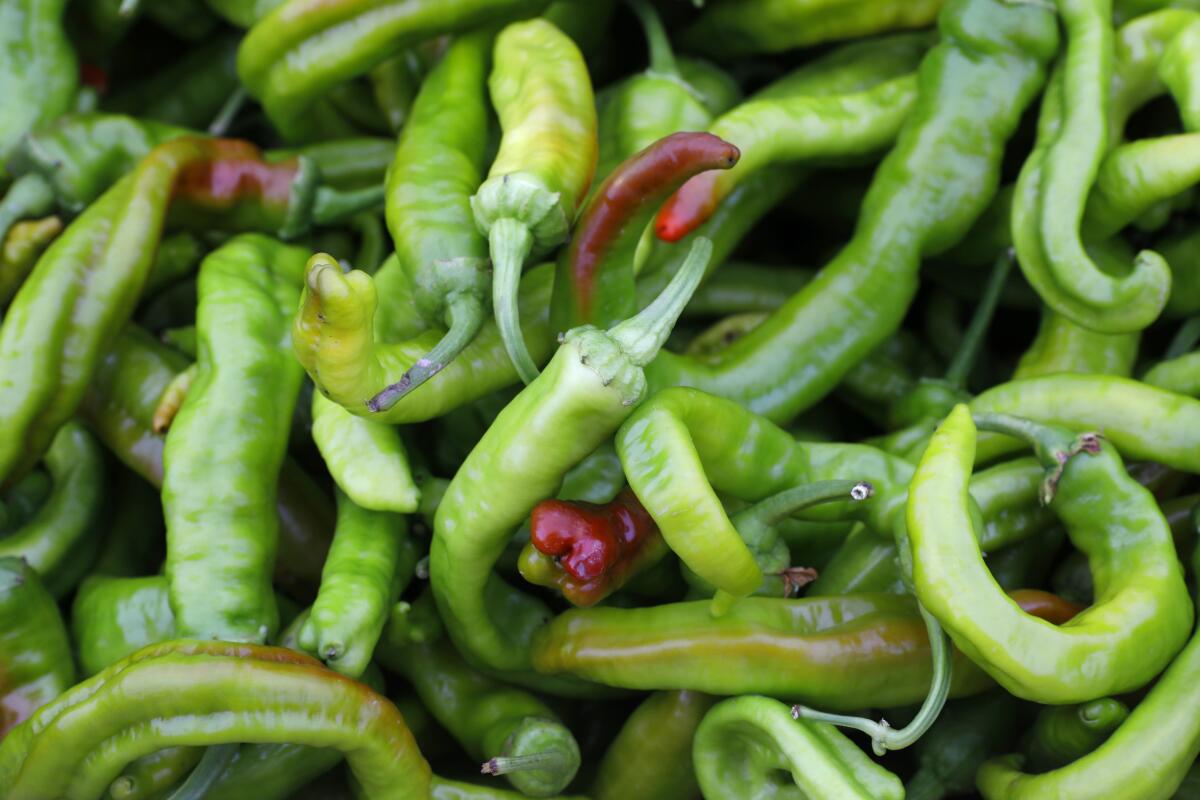
“I really haven’t been able to do the dad thing for the past couple years, which has been really tough,” he said. “I wanted to make up for some of that time.”
He knows better than most the sacrifices that come with growing up in a farming family.
He was 3 when his Hmong family arrived in Fresno as refugees in 1988. They’d fled violence in their native Laos after the Vietnam War, during which the CIA had secretly recruited Hmong soldiers to fight against the North Vietnamese. Once American forces withdrew, the Hmong faced persecution from the communist regime in Laos. Many families, including the Thaos, escaped to Thai refugee camps, where they lived for years before they were finally granted asylum in the U.S.
Today there are more than 100,000 Hmong Americans living in California.
Faced with language barriers and limited job opportunities, the Hmong who settled in the Central Valley turned to farming to eke out a living. They worked as laborers early on, eventually earning enough money to rent small plots of land where they could raise their own crops. Seeds and equipment often were borrowed from relatives.
At first, Kong’s now 64-year-old father, Vang Thao, followed the path of other local farmers and sold his produce to wholesale companies that paid on consignment. Then a family member tipped him off about the newly launched Palos Verdes Farmers Market, where he began selling in 1994.
A few years later, he expanded to the Santa Monica Farmers Market, the largest and oldest market in the L.A. area, and then to the Torrance market. At the time, few farms were raising the crops — bitter melon, long beans, daikon, yu choy, okra — that the Thao family came to be known for.
Kong, the second of 10 siblings, has retold this story countless times. The seasonal cycle of planting, picking and selling was a constant backdrop to his childhood.
“As a kid, it’s like your daily chores. It’s sorting tomatoes when you’re at home, going to the market on the weekends. You don’t really have time for sports or extracurriculars because you’re always helping your parents,” he said.
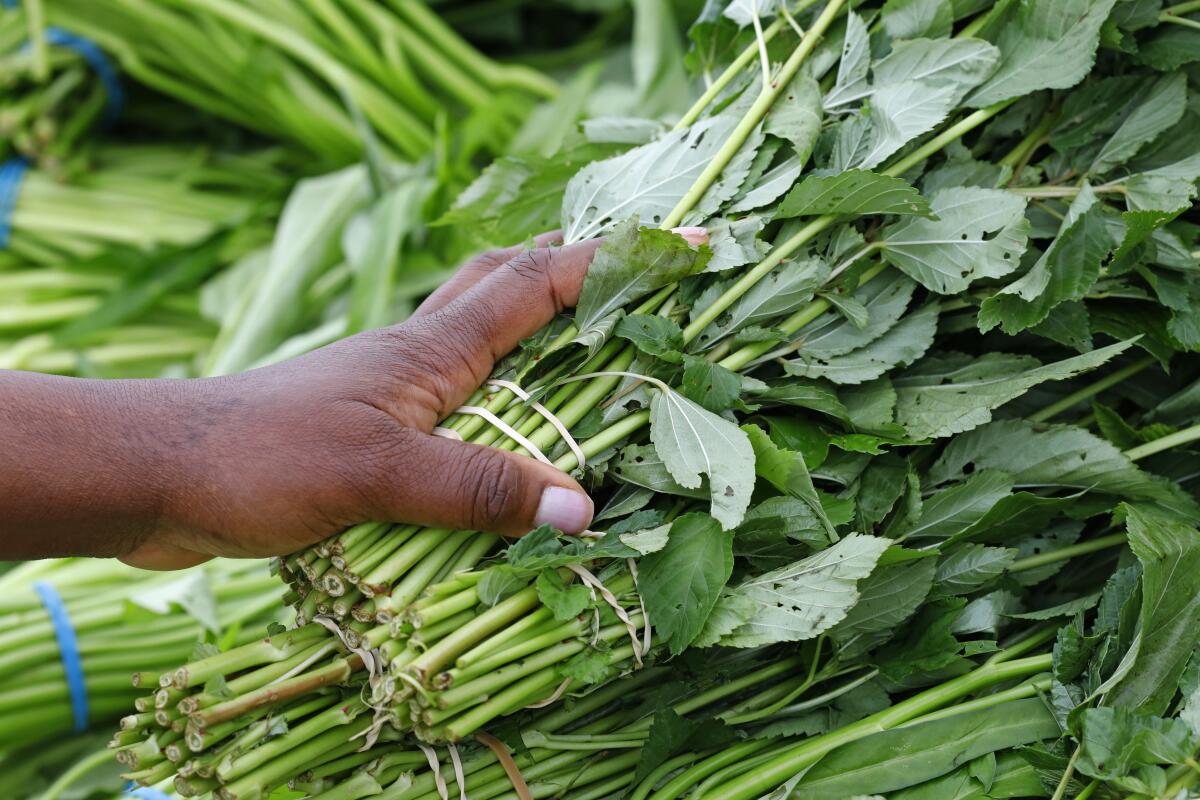
In 2013, Kong left his career as an automotive technician to help run his parents’s farm full-time, mostly in hopes that his mother and father could soon retire. He likes to joke that he quit a job that paid double what he makes now in order to work twice as hard.
The success that Thao Family Farm experienced since that time has been exceptional in many ways, but it also fits within a broader narrative shaping California’s agricultural landscape.
According to the University of California Agriculture and Natural Resources Cooperative Extension (UCCE), there were nearly 1,300 Asian farms in Fresno County in 2007. Roughly 70% of them were run by Hmong growers.
The majority of these farms tend to grow a handful of crops — bok choy, zucchini, kale — and sell them to wholesale distributors, the kind that supply supermarket chains.
But a smaller segment of Hmong farmers found their niche at farmers markets across the state. According to Michael Yang, the Hmong agricultural assistant for the UCCE, some growers drive as far as San Diego to meet demand for Asian specialty crops; their produce can sell for three times as much in larger cities compared to Fresno.
Visit any well-regarded market in Southern California, and there’s a strong chance a Hmong farmer will be represented among the vendors.
The South Pasadena Farmers Market is home to June Moua of Dream Farms, who sells rainbow-colored carrots and peppers. Pang Thao helps her parents run Fue Thao Fresh Produce at the Camarillo Farmers Market, carrying fresh herbs like lemongrass and parsley.
At the Santa Monica Farmers Market on Wednesdays, long-running Hmong farmers include Chao Her of Fresno Evergreen and Xiong Pao Her of Her Produce. Both are half-siblings to Kong’s mother, Khoua Her.
But if there’s an obvious successor to Kong at the markets, it’s probably 31-year-old Zeng Thao, a relative who runs Mr. Thao’s Farm.
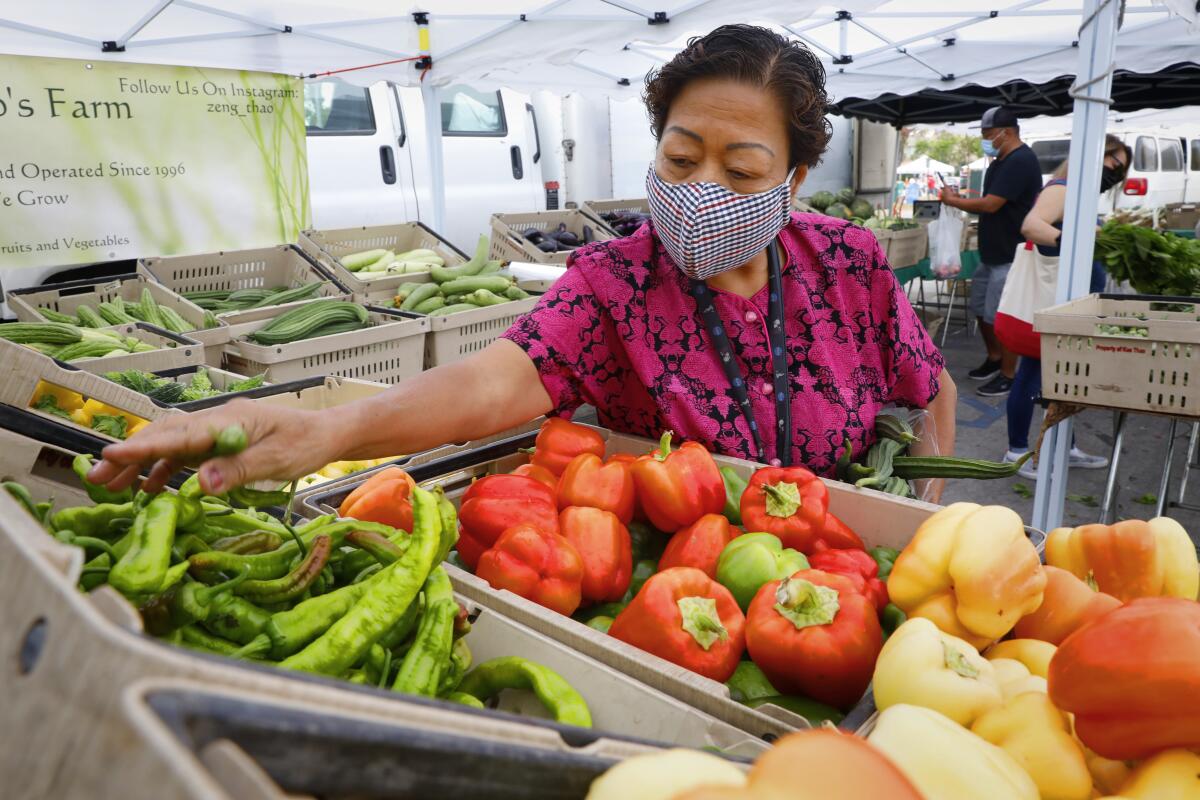
The roots run deep
Kong’s father, Vang, and Zeng’s father, Changseng Thao, are cousins.
“They grew up more like brothers than cousins,” said Zeng. “Our families are extremely close.”
Changseng immigrated to Fresno a couple of years after Vang but gravitated toward farming in the same way. Since the late 1990s, he’s sold produce at the various markets across Southern California, including Encino and Mt. San Antonio College in Walnut, as well as the high desert.
That meant, much like Kong, Zeng grew up immersed in the family business.
“I’ve been working at these markets since I was 10 years old,” Zeng said. “This is the only job I’ve known. I’ve never had a 9-to-5, never flipped burgers or anything like that.”
On a recent morning at the Torrance Farmers Market, Zeng, wearing a T-shirt and flip-flops and slightly bleary from the long drive, surveyed a table populated with several fragrant varieties of basil, dill and mint, as well as leafy bunches of moringa, a peppery herb popular in Filipino cooking.
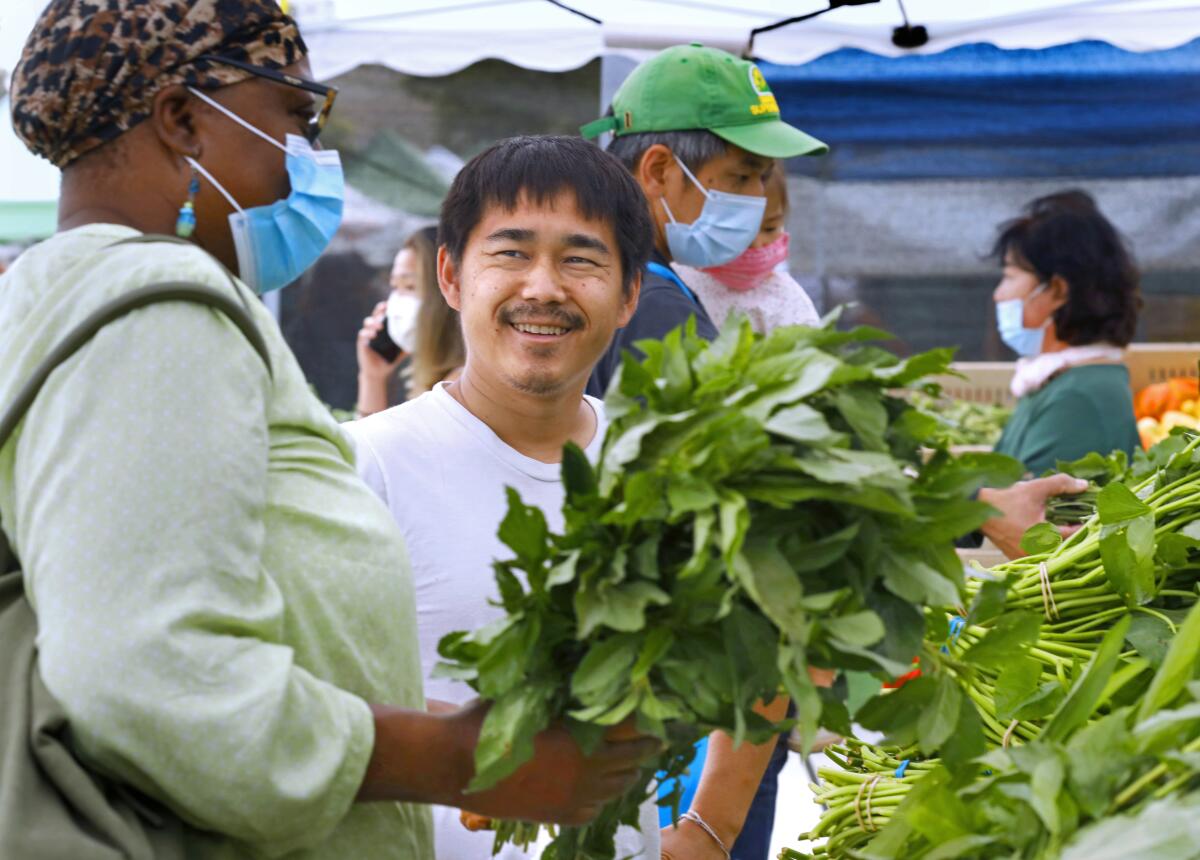
His younger brother Pheng — Zeng is the oldest of 11 siblings — stood nearby taking cash. It was the first week of the season for the farm’s brightly hued (and exceptionally spicy) Thai chiles, and sales were brisk.
“Just wait until we start carrying fresh peanuts in a couple weeks,” Zeng said. “I’ve seen customers fight over those.”
When Kong left the Torrance market in January, his parents asked Zeng’s family if they wanted to take over their spot. Market manager Joyce Chan was delighted. The large Asian community in the South Bay has meant an eager audience for Hmong-grown products.
Though they are distinct and separate businesses, Thao Family Farm and Mr. Thao’s Farm share more similarities than their name. Both families are strict about avoiding sprays and pesticides; they weed and pick their fields by hand and use only nitrogen-based fertilizers.
Moreover, the farms are on adjacent lots, each outfitted with water-efficient drip irrigation systems and hothouses for growing tender greens such as Malabar spinach, amaranth and sweet potato leaves.
There is one crucial difference, though. Kong’s family purchased its land in 2010; Zeng’s family, like the majority of Hmong farmers, leases its 10-acre property.
Kong believes that owning the land has been a major factor in his family’s success over the years, allowing him the stability to experiment with different crops and invest in long-term plantings such as Sichuan peppercorn and guava trees.
“My mom planted the peppercorn trees as soon as we got on the property,” he said. “The first year I brought Sichuan peppercorns to the market, nobody cared. They just sat there. Now every year they sell out.”
Zeng is eager to expand his family’s farm too and hopes to eventually purchase property and maybe a tractor, especially since his parents are nearing retirement age.
“Zeng and his brothers, they’re like where my brothers and I were 10 years ago,” Kong said. “I’m doing my best to help him and share what I’ve learned, so they can be successful in the long run.”
The next step for Mr. Thao’s Farm is likely the popular Hollywood Farmers Market, which Zeng aims to join once he can be sure he won’t be overextending his current operation.
“You only have so much land to work with, so you have to plan things out based on how much you’re selling,” he said.
As for Kong, though he’s heard from customers who are disappointed he’s no longer at the markets, he also received support from fellow farmers and longtime friends such as Romeo Coleman and Alex Weiser, as well as chefs such as Walter Manzke and Josef Centeno.
“They understood what I was going through with the burnout, because I think they’d also gone through it in some way,” he said. “We’re all in the same boat at the end of the day.”
His plan for Thao Family Farm at the moment is to expand further into what might be called bespoke farming — growing specialty ingredients at the behest of chefs and restaurants with whom he’s spent years developing close relationships.
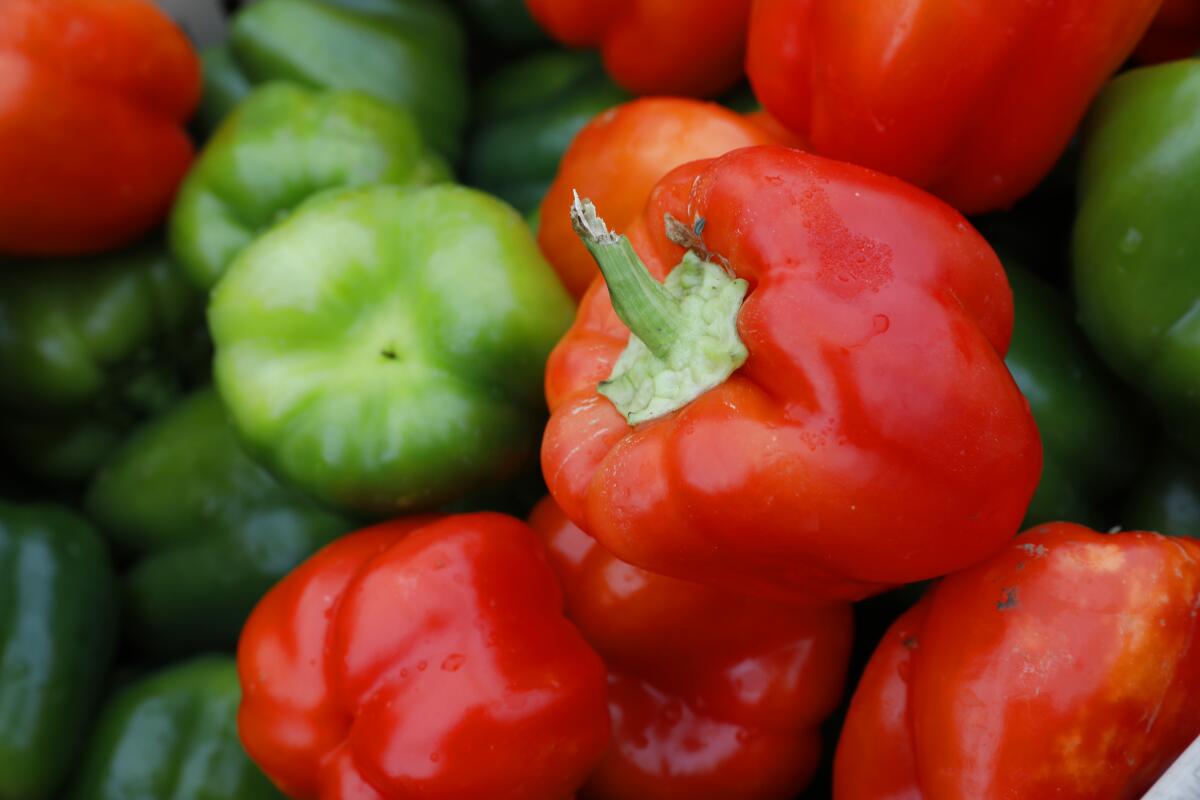
He’s currently tinkering with test crops of capers and caperberries and developing a process for “forced” rhubarb and white asparagus, a farming technique that involves growing plants in complete darkness to yield a more supple and flavorful product.
“The idea of planting completely new stuff, that’s exciting,” he said. “If I never sell another bunch of kale in my life, I’m fine with that.”
He is also in the process of opening a dedicated farm stand in Fresno, which will allow some of his produce to reach the immediate community instead of traveling south.
“I’m not sure if Fresno is ready for fresh turmeric root or whatever else we’ll have, but I like the idea of having a store that’s close to home, where my kids can grow up.”
Another goal: Kong wants to use his visibility to shine a spotlight on lesser-known Hmong farmers, people he believes are doing admirable work but haven’t reached his level of celebrity.
“We were incredibly fortunate to receive all the attention that we did, but at the same time, I still get tagged in every Instagram when someone buys eggplant from an Asian person,” he said.
“The question I always get asked in interviews is: What makes you so special? And it’s like, I don’t know if we’re that special. I learned everything I know from my mom. Maybe we were at the right place at the right time, maybe we met the right people. But if these other [Hmong] farms who weren’t as privileged can see our success, especially the second generation, they can take that as inspiration.”
That might explain the phrase Zeng has ready when someone asks him if they’re buying from Kong Thao at the market: “Different family, same spirit.”
Find Mr. Thao’s Farm on Saturdays in Torrance and Mt. San Antonio College in Walnut, Sundays in Encino and Tuesdays in Torrance and on Instagram at @zeng_thao.
More to Read
Eat your way across L.A.
Get our weekly Tasting Notes newsletter for reviews, news and more.
You may occasionally receive promotional content from the Los Angeles Times.









